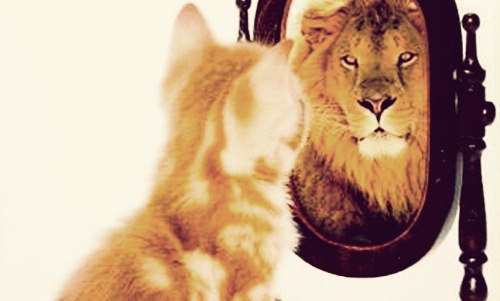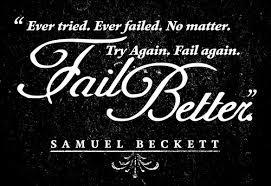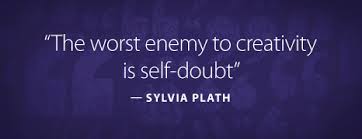 Have you ever met a golden person?
Have you ever met a golden person?
You recognise him at once because you can’t help but notice. There’s something in their pheromones, perhaps, that draws you in.
They’re not always nice people; some are, but that’s irrelevant. They don’t have to be nice, or famous, or particularly talented. In fact, one of the most luminous of the golden people that I’ve ever met was a sales rep for an insurance company. He was misogynistic, self-absorbed, and deceitful. Seriously, he had the morals of a particularly disreputable alley cat. You’d have to be mad to like him, but you still couldn’t help but notice him.
That air of unshakable self-confidence was what made him so successful at his job. He gave off an ‘I know what I’m doing’ vibe that was so potent you just became intoxicated by it.
When it comes to writing, confidence is one of those elements that people seldom seem to mention, and yet it is, in my opinion, just as important as talent. Perhaps, whisper it, even more so.
Why? I’m glad you asked.
You’ll hear the greats give advice:
“Genius is one percent talent and ninety-nine percent perspiration.” — Thomas Edison.
“Genius gives birth, talent delivers. What Rembrandt or Van Gogh saw in the night can never be seen again. Born writers of the future are amazed already at what they’re seeing now, what we’ll all see in time for the first time, and then see imitated many times by made writers.” –Jack Kerouac.
“A writer needs three things, experience, observation, and imagination, any two of which, at times any one of which, can supply the lack of the others.” — William Faulkner
“A professional writer is an amateur who didn’t quit.” — Richard Bach
All true. Lord knows, I wouldn’t presume to argue with the likes of Kerouac or Faulkner, and I agree that both talent and perseverance are crucial, but I don’t think you can overestimate the importance of confidence for any artist.
Creative Confidence
I’m talking here about creative confidence: a faith in your ability to master your art. Faith in the creative process itself. It means, above all, accepting that there’s no such thing as unadulterated success. There will always be failures. If you are to succeed as a writer, you must be willing to accept that failure as part of the deal. Be willing to fail, not once, but repeatedly. After all, true failure isn’t falling down, it’s staying down.
A writer needs confidence just to apply pen to paper. There’s always going to be the nagging thought that others might read what you’ve written and think you’re a monster. Or maybe no one will ever read it because they don’t think you have anything to say. A writer writes only for him- or herself. You can talk about your ideal readers all you want, but every single writer I know, myself included, writes firstly for themselves. Does it matter if no one else gets it? If they fall down laughing at what you thought was deeply felt prose? Sure, your feelings will be hurt, but you’ll learn. You’ll fail again but you’ll come to understand what Beckett meant:
 The real failure isn’t in people not reading your work, or not understanding it. It has nothing to do with not being published or missing the best-sellers’ list. The only real, ultimate failure is giving up. As Buddha says,
The real failure isn’t in people not reading your work, or not understanding it. It has nothing to do with not being published or missing the best-sellers’ list. The only real, ultimate failure is giving up. As Buddha says,
“There are only two mistakes one can make along the road to truth: not going all the way, and not starting.”
Failure is Inevitable
Mr Golden-boy, the salesman I mentioned at the outset, knew that he wasn’t going to make every sale. He knew that he would probably lose more accounts than he won, but that never factored into his thinking. It was simply the cost of doing business. This wasn’t his account; on to the next one.
The problem for writers is the product is, to some degree, tied in to our egos. When your work is rejected it’s hard not to feel that, on some level, it is you who is being dismissed.
How to overcome an overwhelming sense of failure?
- Acknowledge your feelings. Don’t try to kid yourself that you’re not angry, hurt, resentful. You’re a human being.
- Channel your anger or resentment into some physical activity. Go for a walk, take up kick boxing, dance.
- Take care of yourself. Eat, sleep, listen to music, meditate, spend time with people who love you. Replace all that negative energy with positives.
- Develop a sense of humour. Make up limericks about the numskull who rejected you. Draw dopey cartoons of what you imagine they look like.
- Set the rejected work aside for a while and work on something completely different.
- When you feel you’re ready, return to the rejected piece and see if it needs more work. Revise it and send it out again. Some writers will tell you to send it out immediately it returns. That’s good advice for some people, but it doesn’t work for me. I always prefer to polish up a piece first before I submit it elsewhere.
Finally, remember this Japanese motto:




I love this title. The trick for me is to tell myself I am up, even when I fall down. Ifs all a matter of perspective.
Erik
http://erikconover.com/2014/07/16/my-kind-of-town/
LikeLike
Thanks, Erik. He was a clever lad, that Samuel Beckett. And you’re right; it is all a matter of perspective. As Paul Simon once said, One man’s ceiling is another man’s floor.
LikeLike
Yes, Mr Beckett was a wise man. Thank you for sharing that quote! I love it
LikeLike